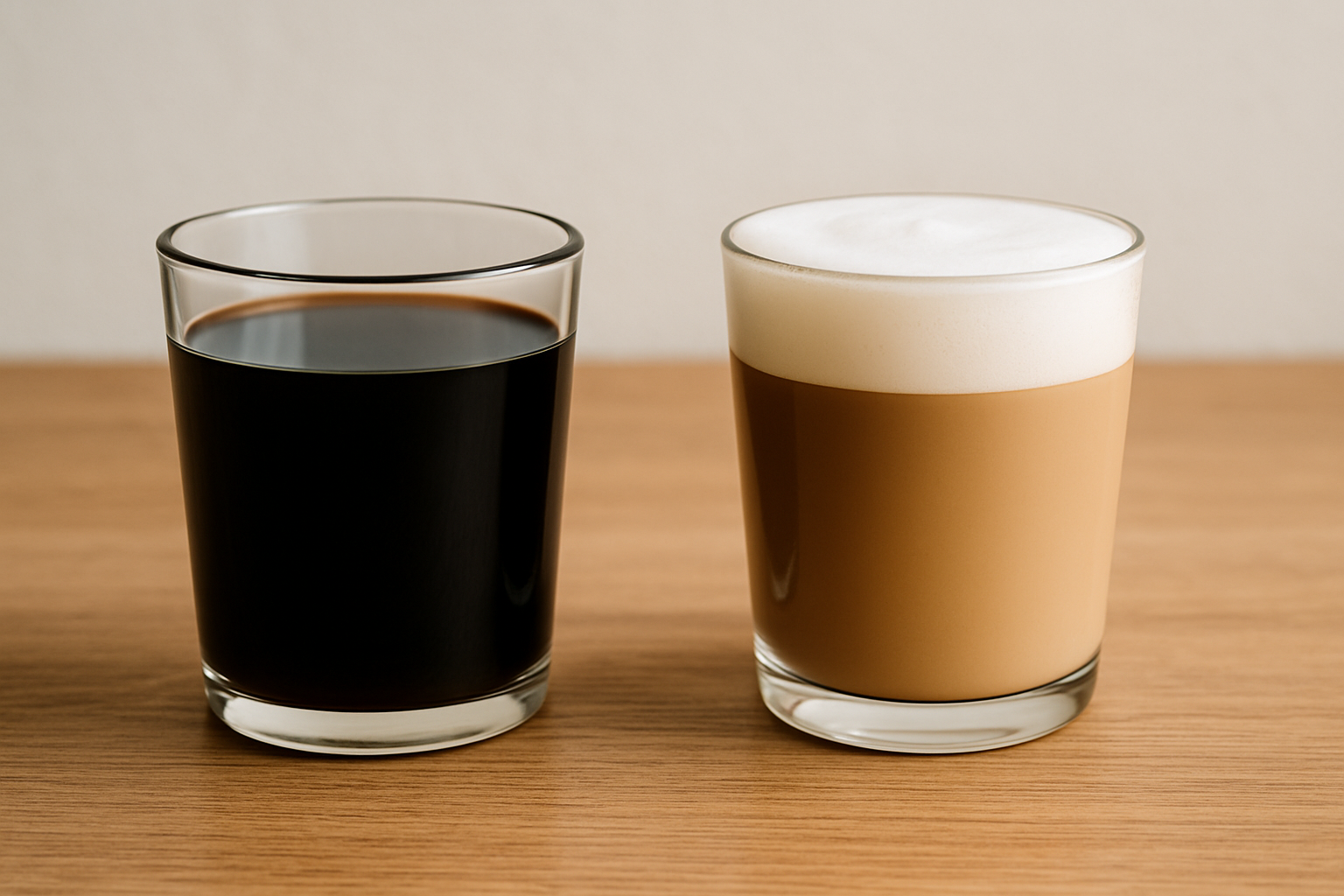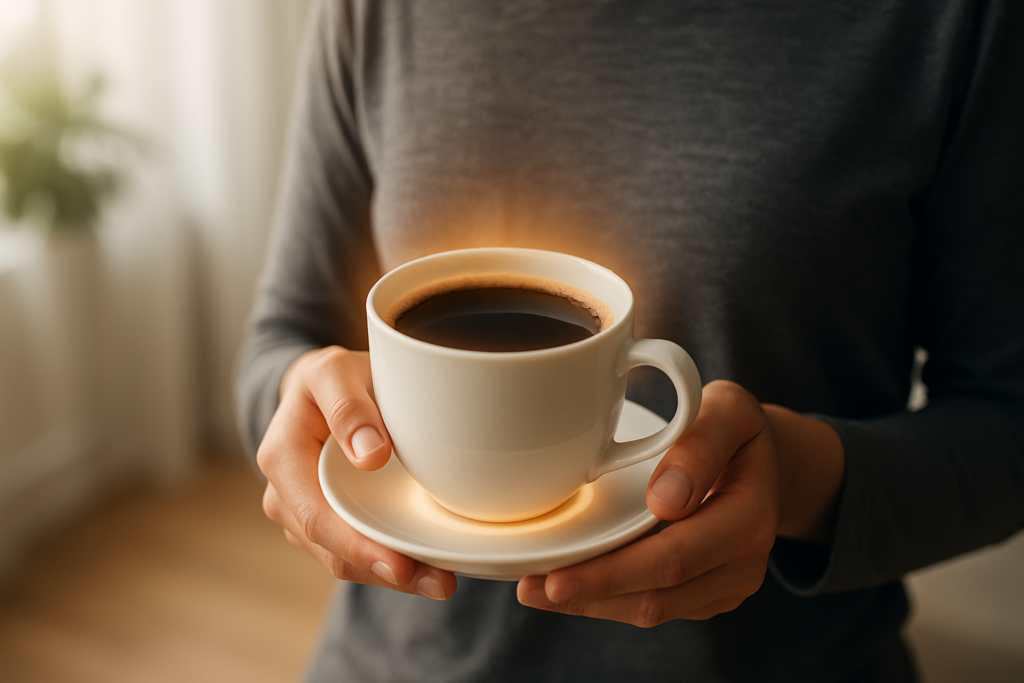Coffee and Fasting: Can You Really Drink Coffee Without Breaking Your Fast?
Can You Drink Coffee While Fasting?
Fasting has come a long way from its roots as a religious tradition. These days, it’s more likely to show up in podcasts, wellness routines, and Monday-morning reset plans. People fast to boost energy, burn fat more efficiently, or give their body a break to reset. But one question always comes up early: “Does that mean I have to give up coffee?”
For many of us, coffee isn’t just a habit—it’s part of how we start the day. That first cup often feels like the one comforting thing that makes fasting even doable. So here’s the good news: in most cases, plain black coffee doesn’t break a fast. And depending on your goals, it might even help you stick to one. A standard cup of black coffee has just 1 to 3 calories—so little that it’s unlikely to spike insulin or affect key fasting processes in healthy people. But as always, the story gets more interesting when you start adding things to it.
What Counts as “Breaking a Fast” Anyway?
The phrase “breaking a fast” sounds pretty black and white—but in reality, it’s not that simple. Whether something actually breaks your fast depends on why you’re fasting in the first place.
If your goal is to keep insulin levels low and stay in a fat-burning state, then a few calories from black coffee probably won’t interfere. But if you’re aiming for deep cellular benefits like autophagy—the body’s internal recycling and repair system—even a small hit of calories or nutrients might shift you out of that mode.
There’s no universal rule. Some people fast purely for weight loss, and for them, anything that doesn’t spike insulin or blood sugar might be fine. Others fast to support gut rest or reduce inflammation, where even trace nutrients or digestive stimulation can make a difference.
That’s why understanding your own “why” is key. Once you know what you’re fasting for, it becomes much easier to decide what fits—and what doesn’t.
Let’s Talk Add-Ins: What’s Okay and What’s Not?
Here’s where things get trickier. Black coffee? You’re probably fine. But the moment you start adding things to your cup, the equation changes.

Milk and cream, even in small amounts, contain carbs and proteins that can kick-start digestion and raise insulin. That doesn’t make them “bad,” but it does mean your fast is technically over—especially if your goal is autophagy or gut rest.
Plant-based milks like almond, oat, or soy? It depends. Some unsweetened versions are very low in calories, while others—especially oat milk—can spike blood sugar more than you’d expect. Always check the label, and know that even a small splash could shift you out of a clean fast.
Sweeteners are another gray area. Non-caloric options like stevia or monk fruit don’t contain sugar, but they can still affect insulin response in some people. It’s not the same for everyone—some handle them well, others notice hunger or energy dips after using them.
Then there’s the trendier stuff: collagen, protein powder, butter, MCT oil. These are definitely not calorie-free. They technically do break a fast. But in certain fasting approaches—especially ketogenic or performance-based styles—they may still be considered compatible. That’s because they don’t raise insulin much and can support focus, satiety, and fat metabolism.
If you’re curious about how MCT oil affects your fasted state, check out our article on how MCT oil makes Bulletproof coffee even better.
Why Some People Feel Better with Coffee While Fasting
Let’s be honest—fasting isn’t always easy. That’s why coffee can feel like a secret weapon. It’s warm, familiar, and gives you something to look forward to when there’s no breakfast in sight.
But beyond comfort, there’s real physiology at play. Caffeine is known to suppress appetite, at least temporarily, which can make it easier to extend your fasting window. It also increases alertness and focus by blocking adenosine, a compound that signals fatigue. That’s why you might feel sharper with a cup of coffee during a fasted morning—especially when your body hasn’t had any fuel yet.
Some people even say that coffee gives them a feeling of lightness or mental clarity while fasting. And there’s a good reason for that: the combination of mild stimulation and metabolic adaptation can create a sense of flow. Not always, of course—but when it happens, it’s one of the reasons people stick with fasting routines long-term.

There’s also a growing interest in nootropic coffee blends—formulas designed to enhance cognitive performance while keeping you in a fasted state. These often include ingredients like L-theanine, which smooths out the sharper edges of caffeine, or Lion’s Mane mushroom, which is being studied for its potential brain-supporting properties. If that sounds like something you’d want to try, you might like our deeper dive into nootropic coffee and focus.
Of course, not everyone reacts the same way. If you ever feel jittery, anxious, or nauseous from coffee on an empty stomach, that’s worth listening to. A gentler roast, smaller amount, or waiting an hour into your fast before sipping might make all the difference.
So, Is Coffee Helping or Hurting Your Fast?
Here’s the bottom line: if you’re drinking your coffee black, you’re probably not breaking your fast—at least not in a way that matters for most goals. Whether you’re fasting for weight loss, better energy, or metabolic health, plain coffee is generally safe, and for some, even helpful.
Things only get complicated when you start adding stuff. Milk, sweeteners, collagen, and trendy extras might be fine for some fasting styles, but they do trigger digestion and add calories—so they technically shift you out of a clean fast. That doesn’t mean you have to stop using them altogether, but it’s important to know what each addition does and how it fits with your personal goals.
And that’s really the key: fasting isn’t a one-size-fits-all system. Whether you’re aiming for fat-burning, mental clarity, or gut rest, how you use coffee should support that—not fight it. So enjoy your cup. Keep it simple when you need to stay in a fasted state. And if you decide to blend in something extra, make it a choice—not an accident.

